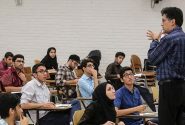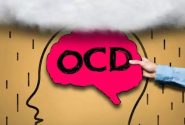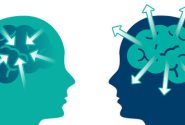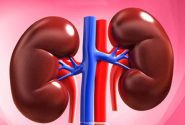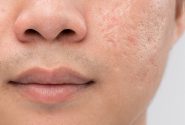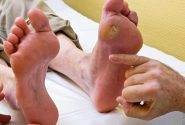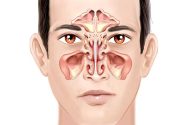به گزارش پایگاه خبری تحلیلی تسریر، به نقل از هلث دی نیوز، این مطالعه نشان داد که افراد با تحصیلات بیشتر در مقایسه با افراد کم سوادتر دیرتر پیر می شوند و عمر طولانی تری دارند.
طبق گزارشی که در اول مارس در مجله JAMA Network Open منتشر شد، تحصیلات بیشتر به طور قابل توجهی با سرعت پایینتر پیری و کاهش خطر مرگ مرتبط است.
نتایج نشان میدهد که در واقع، هر دو سال تحصیل بیشتر به معنای کاهش ۲ تا ۳ درصدی سرعت پیری است. همچنین با حدود ۱۰ درصد کمتر خطر مرگ زودرس همراه است.
به گفته محققان، این اولین مطالعه ای است که موفقیت تحصیلی را با سرعت پیری و زمان مرگ مرتبط می کند.
دانیل بلسکی، محقق ارشد، استادیار اپیدمیولوژی در دانشکده بهداشت عمومی میلمن دانشگاه کلمبیا در شهر نیویورک، گفت: «مدتهاست که میدانیم افرادی که سطح تحصیلات بالاتری دارند، زندگی طولانیتری دارند.
بلسکی در بیانیه خبری دانشگاه اضافه کرد: «اما یکسری چالشها در پی بردن به اینکه چگونه پیشرفت تحصیلی به طول عمر سالم کمک میکند یا خیر، وجود دارد.»
برای این مطالعه، محققان بر دادههای حاصل از مطالعه قلب فرامینگهام تکیه کردند، پروژهای که برای اولین بار در سال ۱۹۴۸ آغاز شد و سلامت ساکنان شهر فرامینگهام، ماساچوست را ردیابی میکند. این مطالعه اکنون سه نسل را در بر میگیرد.
برای اندازهگیری سرعت پیری، محققان دادههای ژنتیکی شرکتکنندگان در مطالعه فرامینگهام را با استفاده از تست «ساعت» ژنتیکی که مانند سرعتسنج برای فرآیند پیری عمل میکند، تجزیه و تحلیل کردند. این آزمایش اساساً اندازه گیری می کند که بدن یک فرد با افزایش سن چقدر سریع یا کند تغییر می کند.
سپس محققان داده های ژنتیکی پیری را با میزان تحصیلات بیشتر یا کمتر هر فرد در این مطالعه در مقایسه با والدین و خواهر و برادرشان مقایسه کردند.
به گفته محققان، به این ترتیب، این مطالعه می تواند تفاوت در زمینه های تحصیلی بین خانواده ها را توضیح دهد.
گلوریا گراف، محقق ارشد، دانشجوی دکترای اپیدمیولوژی در دانشگاه کلمبیا، گفت: «این مطالعه کنترل تفاوتهای بین خانوادهها را طراحی میکند و به ما اجازه میدهد تا اثرات آموزش را جدا کنیم.»
با مقایسه دادههای تحصیلی و سالمندی با سوابقی که نشان میدهد شرکتکنندگان چقدر عمر کردهاند، محققان توانستند سرعت پایینتر پیری را به افزایش طول عمر در افراد با تحصیلات بیشتر مرتبط کنند.
گراف گفت که مسیرهای سالمندی سالمتر در میان شرکتکنندگان با تحصیلات بهتر، نیمی از تأثیر آموزش بر خطر مرگ را توضیح میدهد.
گراف گفت: «یافتههای ما از این فرضیه حمایت میکند که مداخلات برای ارتقای سطح تحصیلات، سرعت پیری بیولوژیکی را کاهش داده و طول عمر را افزایش میدهد.»
بلسکی گفت: «با این حال، تحقیقات بیشتری برای تأیید این رابطه و توضیح اینکه چرا آموزش به فرد کمک میکند تا پیرتر نشود، مورد نیاز است.:»
وی گفت: «در نهایت، شواهد تجربی برای تأیید یافتههای ما مورد نیاز است.»
School not only makes a person smarter, but it can also help them live longer, researchers report.
People with more education tend to age more slowly and live longer lives compared to the less educated, the study found.
Higher levels of education are significantly associated with a slower pace of aging and a lower risk of death, according to the report published March 1 in the journal JAMA Network Open.
In fact, every two years of additional schooling translates to a 2% to 3% slower pace of aging, results show. This corresponds to a roughly 10% lower risk of early death.
This is the first study to connect educational achievement with the velocity of aging and the timing of death, the researchers said.
“We’ve known for a long time that people who have higher levels of education tend to live longer lives,” said senior researcher Daniel Belsky, an associate professor of epidemiology at Columbia University Mailman School of Public Health in New York City.
“But there are a bunch of challenges in figuring out how that happens and, critically, whether interventions to promote educational attainment will contribute to healthy longevity,” Belsky added in a university news release.
For the study, researchers relied on data from the Framingham Heart Study, an ongoing project first begun in 1948 that tracks the health of residents from the town of Framingham, Mass. The study now spans three generations.
To measure pace of aging, researchers analyzed genetic data from Framingham study participants using a genetic “clock” test that functions like a speedometer for the aging process. The test essentially measures how fast or slow a person’s body will change as they age.
Researchers then compared the genetic aging data to how much more or less education each person in the study attained, compared to their parents and siblings.
That way, the study could account for differences in educational backgrounds and financial resources between families, researchers said.
“These study designs control for differences between families and allow us to isolate the effects of education,” said lead researcher Gloria Graf, a doctoral student in epidemiology with Columbia University.
By comparing education and aging data to records indicating how long participants lived, researchers were able to link a slower pace of aging to increased longevity in people with more education.
Healthier aging trajectories among better-educated participants explained up to half of the impact that education had on the risk of death, Graf said.
“Our findings support the hypothesis that interventions to promote educational attainment will slow the pace of biological aging and promote longevity,” Graf said.
However, more research is needed to confirm this relationship and explain why education would help a person age more gracefully, Belsky said.
“Ultimately, experimental evidence is needed to confirm our findings,” Belsky said.
تسریر مراقب سلامتی شماست!







